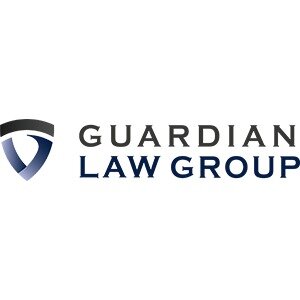Best Reinsurance Lawyers in Calgary
Share your needs with us, get contacted by law firms.
Free. Takes 2 min.
List of the best lawyers in Calgary, Canada
About Reinsurance Law in Calgary, Canada
Reinsurance is a critical aspect of the insurance industry in Calgary, Canada, acting as a mechanism for insurance companies to manage risk. In essence, reinsurance involves an agreement where one insurance company (the ceding company) transfers portions of its risk portfolios to another insurance company (the reinsurer) to reduce the likelihood of paying large obligations resulting from claims. This practice assures stability and resilience within the insurance market and allows insurers to accept larger and more varied risks.
In Calgary, a hub for reinsurance activity in Canada, the industry is regulated by both federal and provincial authorities, including the Office of the Superintendent of Financial Institutions (OSFI) and the Alberta Insurance Council. These bodies ensure adherence to strict operational standards and financial solvency to protect policyholders.
Why You May Need a Lawyer
Seeking legal advice in the field of reinsurance may be necessary for several reasons. Contracts in reinsurance can be highly complex and may require interpretation or clarification, especially when it comes to coverage disputes, policy wording, or claims management.
People often require legal representation due to:
- Negotiating reinsurance contracts
- Compliance with regulatory frameworks
- Resolving disputes over claims payments
- Understanding the implications of policy terms and conditions
- Addressing cross-border reinsurance arrangements
- Managing the legal aspects of mergers and acquisitions involving reinsurance entities
Local Laws Overview
Several key aspects of local laws and regulations impact the reinsurance sector in Calgary:
- Regulatory Compliance: Companies must comply with federal and provincial regulations, including licensing requirements and financial condition monitoring by OSFI.
- Contract Law: Reinsurance agreements must be carefully constructed to clearly define the terms, scope, and limitations of coverage.
- Taxation: The federal government and Alberta have tax implications for reinsurance transactions that must be carefully navigated.
- Mandatory Reporting: Companies must adhere to strict reporting and disclosure obligations to maintain transparency and industry integrity.
Frequently Asked Questions
What is reinsurance?
Reinsurance is the process where insurers transfer parts of their risk portfolios to other parties to lower the chances of large financial losses.
How does reinsurance benefit insurers?
It allows insurers to manage risk more effectively, increase underwriting capacity, stabilize financial results, and protect against catastrophic events.
Who regulates reinsurance in Calgary?
The primary regulatory authority is the Office of the Superintendent of Financial Institutions (OSFI), alongside provincial bodies such as the Alberta Insurance Council.
What types of reinsurance are there?
There are two main types of reinsurance: facultative reinsurance, which covers individual or specific risks, and treaty reinsurance, which covers a portfolio of risks.
Do reinsurance companies operate worldwide?
Yes, many reinsurance companies operate globally and manage risk across international borders, necessitating agreements that adhere to multiple legal jurisdictions.
Can reinsurance companies refuse to pay a claim?
Yes, they can refuse if the claim falls outside the terms of the contract or if there is a dispute over interpretation, which often requires legal intervention.
How are reinsurance agreements different from insurance policies?
Reinsurance agreements are more specialized and involve transferring risk between entities, rather than from an individual to an insurance company.
What is the role of a reinsurance broker?
Reinsurance brokers act as intermediaries, helping to place risks with reinsurers and advising on the structuring of reinsurance treaties.
Are there any limitations on reinsurance in Canada?
Yes, there are legal and regulatory boundaries, including limitations on the types of risks that can be reinsured and financial capacity requirements.
Is reinsurance compulsory for insurance companies?
No, it is not compulsory, but it is a widely adopted practice for risk management and regulatory purposes.
Additional Resources
For individuals seeking further information or assistance, consider the following resources:
- Office of the Superintendent of Financial Institutions (OSFI): Provides oversight of financial institutions, including reinsurers in Canada.
- Alberta Insurance Council: Offers guidance and regulation for the insurance industry within Alberta.
- Insurance Bureau of Canada: A national trade association that represents the insurance industry and can provide additional information on reinsurance practices.
Next Steps
If you require legal assistance in reinsurance, consider the following steps:
- Identify Your Needs: Clearly define the specific legal issues you are facing within reinsurance.
- Consult a Specialist Lawyer: Seek legal advice from a lawyer who specializes in reinsurance and insurance law.
- Gather Documentation: Collect all relevant documents, including reinsurance contracts, correspondence, and any regulatory notices.
- Review Legal Options: Work with your legal counsel to understand your rights, obligations, and possible courses of action.
- Consider Mediation or Arbitration: For disputes, explore alternative dispute resolution methods before engaging in litigation.
Taking these steps can help you navigate the complexities of reinsurance legal issues in Calgary and ensure you receive informed and effective guidance.
Lawzana helps you find the best lawyers and law firms in Calgary through a curated and pre-screened list of qualified legal professionals. Our platform offers rankings and detailed profiles of attorneys and law firms, allowing you to compare based on practice areas, including Reinsurance, experience, and client feedback.
Each profile includes a description of the firm's areas of practice, client reviews, team members and partners, year of establishment, spoken languages, office locations, contact information, social media presence, and any published articles or resources. Most firms on our platform speak English and are experienced in both local and international legal matters.
Get a quote from top-rated law firms in Calgary, Canada — quickly, securely, and without unnecessary hassle.
Disclaimer:
The information provided on this page is for general informational purposes only and does not constitute legal advice. While we strive to ensure the accuracy and relevance of the content, legal information may change over time, and interpretations of the law can vary. You should always consult with a qualified legal professional for advice specific to your situation.
We disclaim all liability for actions taken or not taken based on the content of this page. If you believe any information is incorrect or outdated, please contact us, and we will review and update it where appropriate.













